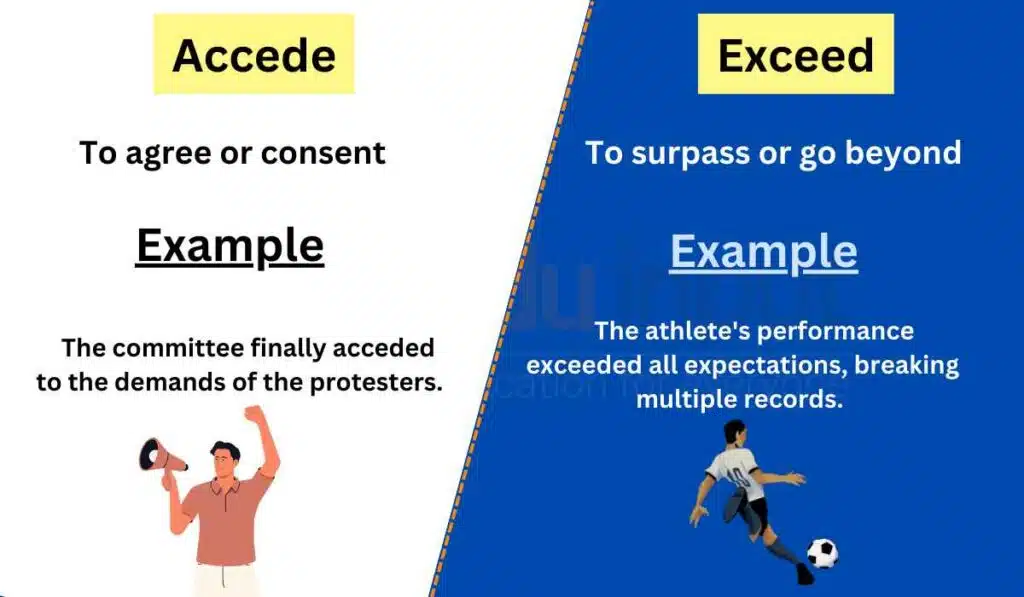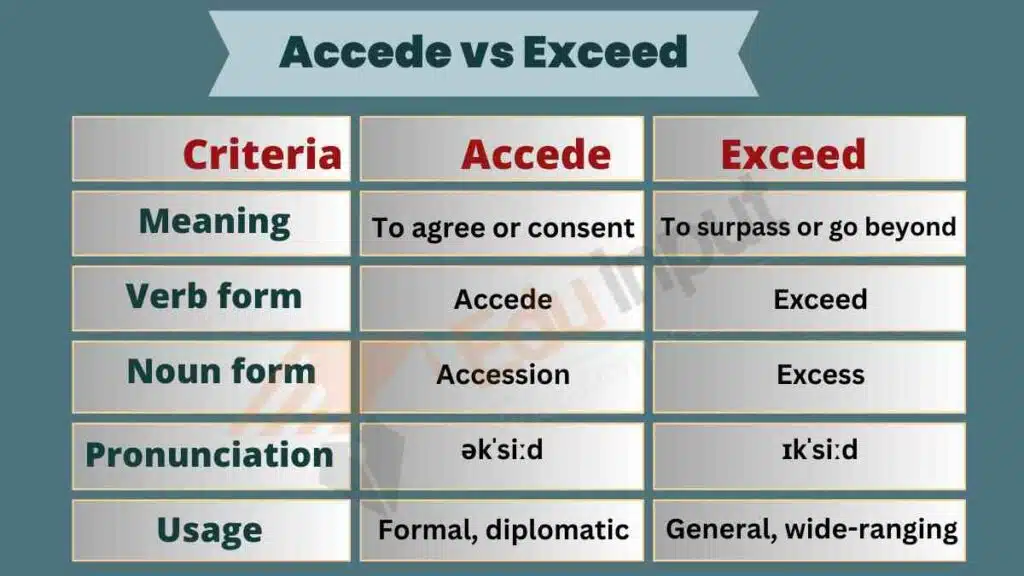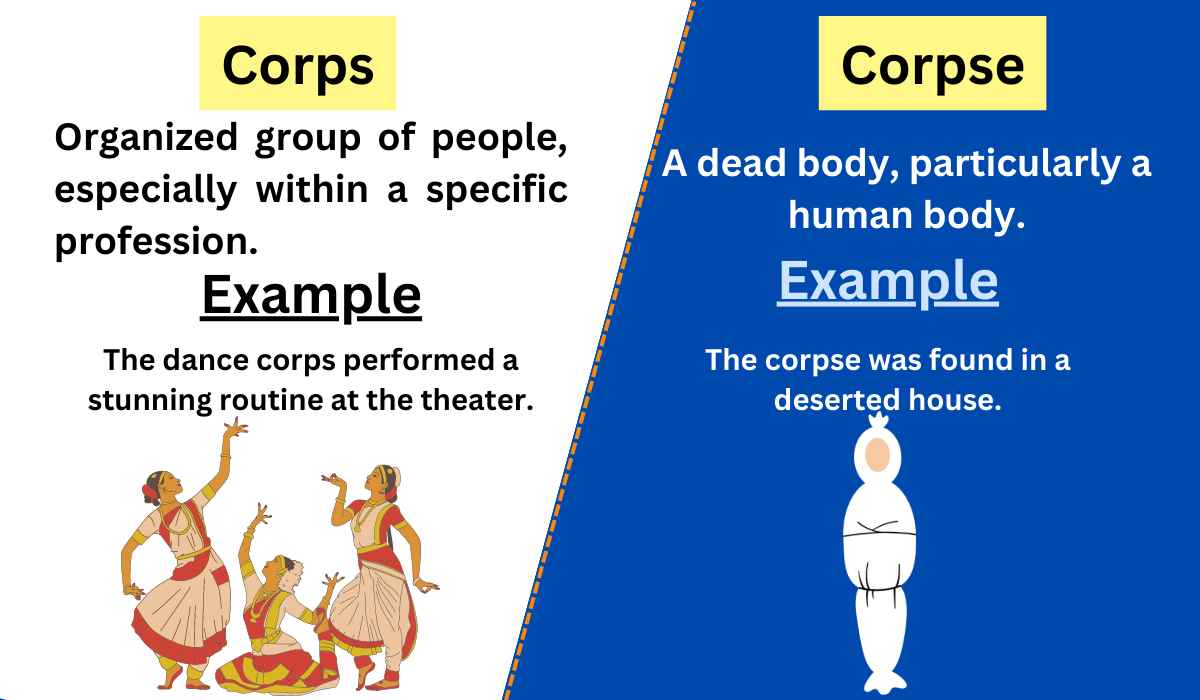Accede vs Exceed – Difference between with Examples
Exceed signifies being of a greater magnitude or quantity, surpassing a prescribed limit. On the other hand, accede denotes assuming the responsibilities of a position, consenting to or becoming a party to a treaty, and yielding to demands. Two such words, “accede” and “exceed,” often cause confusion due to their similarities.

In this article, we will explore the meanings, differences, and various grammatical aspects of these words. Let’s take a deep insight and unravel the distinctions between “accede” and “exceed.”
Meanings and Examples
Let’s see the meaning and examples of accede and exceed:
Accede Meanings
The meaning of Accede according to verb is:
Verb: To agree, consent, or give in to a request, proposal, or demand.
Accede Examples
- The committee finally acceded to the demands of the protesters.
- After much deliberation, the company acceded to the client’s contract terms.
- The government acceded to the public outcry and implemented stricter regulations.
- She reluctantly acceded to her friend’s persistent pleas for help.
- The board unanimously acceded to the CEO’s decision regarding the project.
Exceed Meanings
The meaning of exceed according to verb is:
Verb: To surpass, go beyond, or outstrip a limit, expectation, or standard.
Accede Examples
- The athlete’s performance exceeded all expectations, breaking multiple records.
- The company’s sales exceeded their projected targets for the quarter.
- The noise from the construction site exceeded the permissible decibel level.
- The price of the luxury car exceeds the budget of most consumers.
- The book’s popularity has exceeded the author’s wildest dreams.
Differences Between Accede and Exceed
| Criteria | Accede | Exceed |
| Meaning | To agree or consent | To surpass or go beyond |
| Verb form | Accede | Exceed |
| Noun form | Accession | Excess |
| Pronunciation | əkˈsiːd | ɪkˈsiːd |
| Usage | Formal, diplomatic | General, wide-ranging |

Grammatical Aspects
As Noun
Accede: The noun form of “accede” is “accession,” which refers to the act of agreeing or coming into power.
Exceed: The noun form of “exceed” is “excess,” which represents something that surpasses a limit or standard.
As Pronoun
Accede: “Accede” is not used as a pronoun.
As Verb
Accede: “Accede” functions as a verb, representing the act of agreeing or giving in to a request.
Exceed: “Exceed” also serves as a verb, indicating the act of surpassing or going beyond a certain limit.
As Adjective
Accede: “Accede” does not have an adjective form.
As Adverb
Accede: “Accede” does not have an adverb form.
Usage in a Paragraph
In the realm of negotiations, it is essential for parties to accede to each other’s demands to reach a consensus. However, caution must be exercised not to exceed the agreed-upon limits. For example, in a labor dispute, the management finally acceded to the workers’ requests for improved working conditions and higher wages.
However, the workers must ensure that their demands do not exceed the company’s financial capabilities. Striking between acceding to reasonable demands and not exceeding practical boundaries is key to a successful resolution.







Leave a Reply